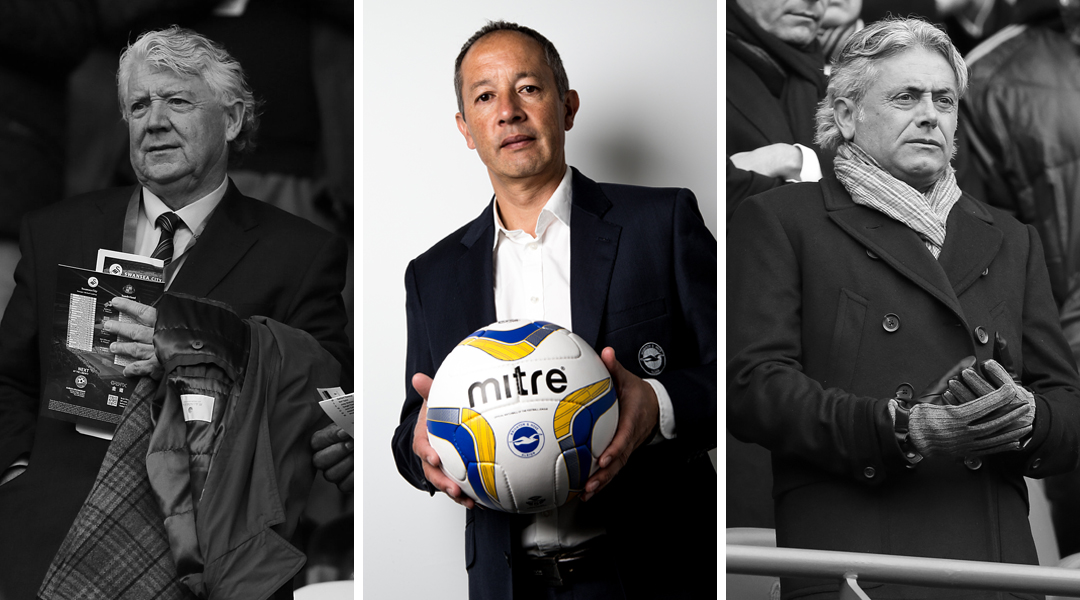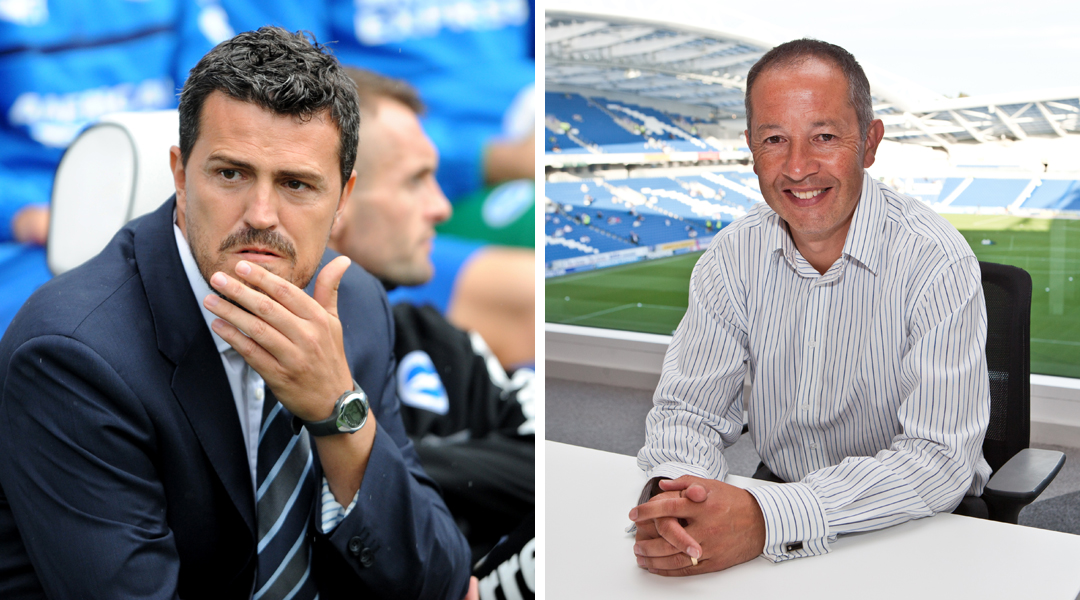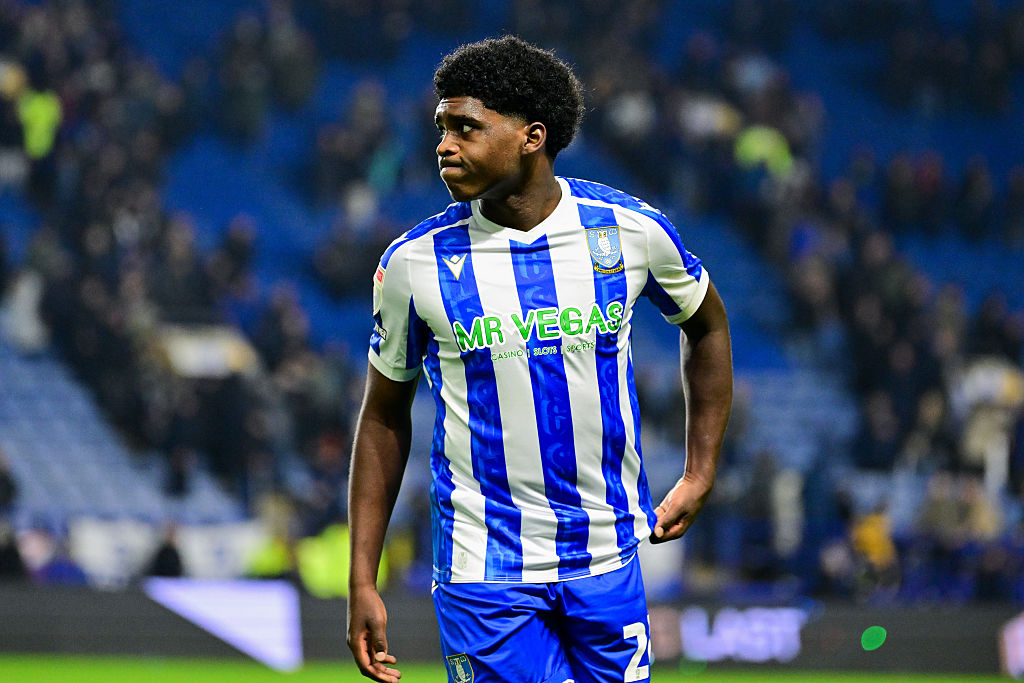The impossible job? How English football can learn to love the Director of Football
With the role of the Director of Football taking another kicking this season, Richard Edwards speaks to a man looking to change perceptions at Brighton...

The best features, fun and footballing quizzes, straight to your inbox every week.
You are now subscribed
Your newsletter sign-up was successful
Want to add more newsletters?

Five times a week
FourFourTwo Daily
Fantastic football content straight to your inbox! From the latest transfer news, quizzes, videos, features and interviews with the biggest names in the game, plus lots more.

Once a week
...And it’s LIVE!
Sign up to our FREE live football newsletter, tracking all of the biggest games available to watch on the device of your choice. Never miss a kick-off!
Join the club
Get full access to premium articles, exclusive features and a growing list of member rewards.
The relationship between the English game and the Director of Football is dysfunctional at best. Viewed as an essential part of a football club on the continent, the role is commonly derided as one that simply doesn’t work in the country that gave the sport to the world.
It must be said, there’s ample evidence to prove that viewpoint. Just ask any Newcastle fan who has been forced to sit through Joe Kinnear’s inglorious and often comedic stab at the role at St James’ Park this season. Meanwhile, down at Tottenham, Franco Baldini has come under fire, with many of his summer signings struggling to adapt to the Premier League.
On the south coast, though – and whisper this quietly in case a highly paid pundit is within earshot – there’s a relationship blossoming that could change the way that we view the position for good.
David Burke may not be a name many readers are familiar with. Unlike Kinnear, he isn’t a man who routinely shouts his credentials from the rooftops. Yet alongside manager Oscar Garcia, he has been instrumental in helping to build a club capable of challenging for promotion to the Promised Land – after missing out in the play-offs under now Sunderland boss Gus Poyet at the tail end of last season.
When he arrived at the Amex Stadium in January 2012, Poyet admitted that Burke faced “a very difficult job”, one made doubly difficult by the club attempting to grow and develop while simultaneously adhering to the new Financial Fair Play legislation.
Bucking the trend
With a new training ground in the offing and the club battling to hit stringent financial targets (Brighton posted a loss of over £14m in February, but are confident they will be brought down to the levels stipulated by FFP come November), it’s clearly a challenge that Burke is relishing.
The best features, fun and footballing quizzes, straight to your inbox every week.
So is this one Director of Football – or Head of Football Operations, as he is officially known – who might just be able to buck the trend and succeed where so many others have failed?
“There’s such a bad stigma attached to the Director of Football or the Technical Director, but ultimately it’s the job description and the type of person you have in place which decides whether that role is successful,” he tells FourFourTwo.
“I’m not here to try and become the first team manager. Sometimes you see clubs in England where the director of football becomes the manager or there’s talk that he might become the manager. To be successful you work with the manager.
“At Brighton, the Head Coach, the CEO (Paul Barber) and myself all report to the Chairman,” says Burke. “We’re all in continual communication and work as a team on all aspects of the football club. My job is to ensure that the Head Coach and his staff can concentrate on coaching and working with the players on a day-to-day basis. Any other distractions around that, I take on.”

All of which sounds a world away from the dysfunctional relationships we’ve witnessed elsewhere. Not so much Pardew and Kinnear as a south coast version of Ant and Dec.
Brighton is a club that prides itself on the sort of long-term strategy that has seen it emerge from a prolonged period of soul searching in the lower reaches of the English game to boasting the highest average attendance in the Football League last season.
The sparking new Amex Stadium is a world away from the Withdean Stadium that the Seagulls reluctantly called home between 1999 and 2011.
It has certainly been a hectic two years for Burke, who before moving to Brighton managed scouting and recruitment at Southampton, but in his quieter moments he has time to smile wryly at the criticism directed at the role by those who believe it’s just not in our nature to embrace the position.
“I can understand why the director of football role does come in for some criticism in some instances,” he says. “Our belief is that for the role to be successful you need to have a clear structure where everyone knows their role, and if they’re good at their roles then you usually get success. If things are thrown together without much thought or long-term planning, that’s when things can go wrong.”
A matter of philosophy
The key to success then? Let’s get deep.
“Southampton have got an excellent philosophy and they’ve made sure they have employed a manager who buys into that philosophy and we’ve done the same here,” he says. “Our head coach was the Barcelona youth coach, he came through the Barcelona system himself, and then brought players through that system into the first team.
“He knows what it takes, not just in terms of putting players on the pitch and giving them minutes but also preparing them by integrating them into training.
“By the time they make their debut they’re part of the squad already, so the players are much more likely to support them, talk to them and help them through.
It was undoubtedly a philosophy that Poyet also bought into, and Burke points to the emergence of Rohan Ince, Solomon March, Jake Forster-Caskey and Lewis Dunk as evidence that the approach is working.
And although eyebrows were raised back in July when the relatively unknown Garcia was announced as the club’s new manager, his appointment now also looks a masterstroke.
“We had a tough start in many ways, not helped by a large amount of injuries,” says Burke. “The manager has authority in a quiet way; when he speaks it’s very pertinent and relevant, and effects the way we work in a positive way.
“Not many clubs would bring in a coach who hasn’t played or worked in England in the past but he has integrated very well. He buys into our whole club philosophy and his main focus is to acquire and assemble a squad of players and prepare them for competition.
“There’s a big Spanish community in Brighton too, which helps.”
If Brighton are celebrating promotion come May then it could be tapas all round.
 Join The Club
Join The Club










